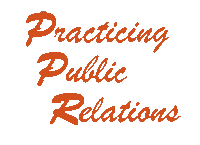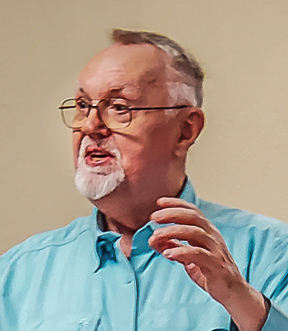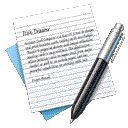

Initially, I created this website to support the public relations courses I taught at Northern Kentucky University, but, now that I've retired, I'm making it available, free of charge, to all public relations students and PR practitioners who may find it useful, especially those seeking professional accreditation. The cornerstone of the site remains my Online Readings in Public Relations which now include more than 100 textbook-style articles, how-to-do-it tipsheets, and fill-in-the-blank templates for public relations planning and project completion.

Online Readings in
Public Relations

Recent reads
in public relations
Strategic & tactical
PR planning
Public relations
during a crisis

How-to tips
for public relations
Revised: 6/25/2025
NOTE TO PHONE USERS: This is the only page on this site formatted for easy reading on a phone-sized screen. The rest of the site is best viewed on a desktop or full-sized laptop.
